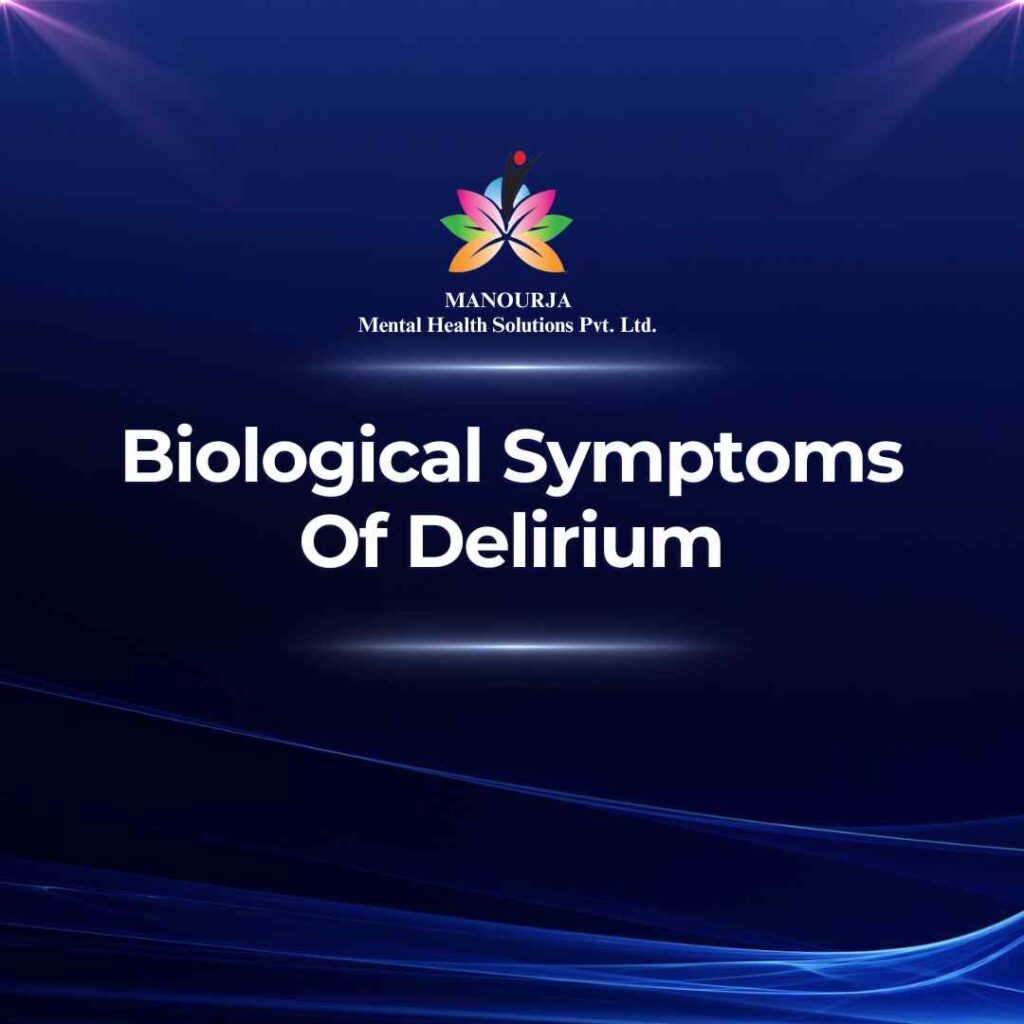Biological Symptoms of Delirium

Delirium represents a significant disruption in cognitive functions, leading to a state of perplexed thought processes and diminished perception of the surrounding environment.. It often has an acute onset and can fluctuate throughout the day. The biological symptoms of delirium involve disruptions in various bodily functions and are typically associated with an underlying medical condition or substance intoxication or withdrawal.
These symptoms may include:
- Altered Level of Consciousness: Delirium often manifests as a fluctuating level of consciousness. Patients may experience periods of hyperactivity and agitation followed by lethargy or stupor.
- Impaired Attention: Individuals with delirium have difficulty focusing, sustaining attention, and easily become distracted. This cognitive impairment contributes to the overall confusion.
- Disorganized Thinking: Delirious individuals may exhibit incoherent or illogical thoughts. Their ability to process information is compromised, leading to confusion and disorientation.
- Memory Impairment: Short-term memory may be particularly affected in delirium. Patients may struggle to remember recent events or conversations.
- Perceptual Disturbances: Delirium can cause perceptual disturbances, such as hallucinations or illusions, where individuals may see or hear things that are not present.
- Disturbed Sleep-Wake Cycle: Disruptions in the sleep-wake cycle are common in delirium. Patients may experience insomnia, excessive sleepiness during the day, or a reversal of the normal sleep pattern.
- Psychomotor Changes: Delirium can lead to changes in psychomotor activity, ranging from restlessness and hyperactivity to slowed movements and lethargy.
- Autonomic Nervous System Instability: Fluctuations in vital signs, such as heart rate, blood pressure, and temperature, may occur. Sweating and other signs of autonomic dysregulation can also be observed.
It’s important to note that these symptoms are not exclusive to delirium, and a comprehensive assessment is necessary to determine the underlying cause. Delirium can be triggered by various medical conditions, infections, metabolic imbalances, medication side effects, or substance use, among other factors. Early recognition and management of the underlying cause are crucial for successful treatment of delirium.
At MANOURJA, we believe in the transformative power of counseling. Our experienced therapists offer a safe and supportive space where you can explore your thoughts, emotions, and challenges. Through personalized counselling sessions, we’ll work together to develop coping strategies, build resilience, and achieve lasting positive change. Discover the path to a healthier, happier you with MANOURJA counselling services.
MANOURJA Rehabilitation Services
At MANOURJA, we’re dedicated to helping you in rebuild your life, after difficult times. Our rehabilitation services focus on understanding what you need to move forward, whether you’re recovering from addiction, trauma, or any psychological – social challenges. We create personalized plans, that are all about helping you, regain your strength and find hope again. With a caring team by your side, you’ll have the support to make real progress and take steps toward a brighter, healthier future.
